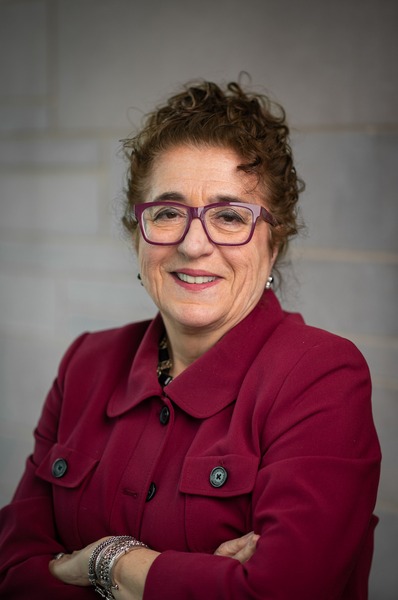2023 Simmel Award Presentation
Bernice Pescosolido | Sunbelt 2023 - Thursday, June 29
The Theoretic Roots of Multilevel Network Models: Challenges and Application to the Contemporary Understanding of Suicide
The 2023 Simmel Award Presentation will be delivered live in Portland on Thursday, June 29 and recorded. The recording will be available on the conference app soon after and a live virtual Q&A will be Friday, June 30 at 10:30 am PDT.
Bernice Pescosolido is Distinguished Professor of Sociology at Indiana University and Founding Director of the Indiana Consortium for Mental Health Services Research (ICMHSR) and the new Irsay Institute that targets research in the sociomedical sciences. She is an elected member of both the National Academy of Medicine and the National Academy of Sciences. Trained as a medical sociologist at Yale, her research focuses broadly on how social networks and culture provide insights into health, illness and healing phenomena, and more specifically on four areas – stigma, suicide, health care use, and health care systems. Her concerns have spanned local, national and international questions and problems, primarily targeting mental illness.
Pescosolido’s research has been published broadly across disciplinary and general journals and has been supported by a number of NIH Institutes as well as the National Science Foundation and private philanthropic organizations. She has served as the Vice President of the American Sociological Association; and has received several career, teaching, and mentoring awards, including the Taube Award from the American Public Health Association, the Reeder Award from the American Sociological Association, and the Wilbur Lucius Cross Medal from Yale. Most recently, her paper on breaking through data and theory stalemates in suicide research, with colleagues BK Lee and Karen Kafadar, was named the 2020 PNAS Cozzarelli Prize Finalist in Social Science.
In particular, Pescosolido’s research is concerned with how social and organizational networks facilitate or frustrate people’s responses to problems. In the early 1990s, she developed the Network Episode Model, which shifts health care utilization research to understanding patterns and pathways to care, adherence to treatment and the care outcomes. On stigma, in 1996 Pescosolido initiated the first major, national study of stigma of mental illness in the U.S. in over 40 years which produced some of the groundwork for the Surgeon General’s Report on Mental Health, the 2013 White House Conference on Mental Health, and the 2016 NASEM Report, Ending Discrimination Against People with Mental and Substance Use Disorders: The Evidence for Stigma Change. This was followed by the National Stigma Study–Children, the National Stigma Study–Replications in 2006 and 2018, and the Stigma in Global Context–Mental Health Study in 16 countries. In addition, as Chair of the Scientific Advisory Council of Glenn Close’s Bring Change to Mind advocacy organization, she led a 4-year, IUbased, team effort to make college campuses “safe and stigma free zones.” Finally, on suicide, Pescosolido leads a team using a big data solution to harmonize novel data to move past US data barriers on completed suicide that will allow more direct examination of social context, connectedness and loss.

